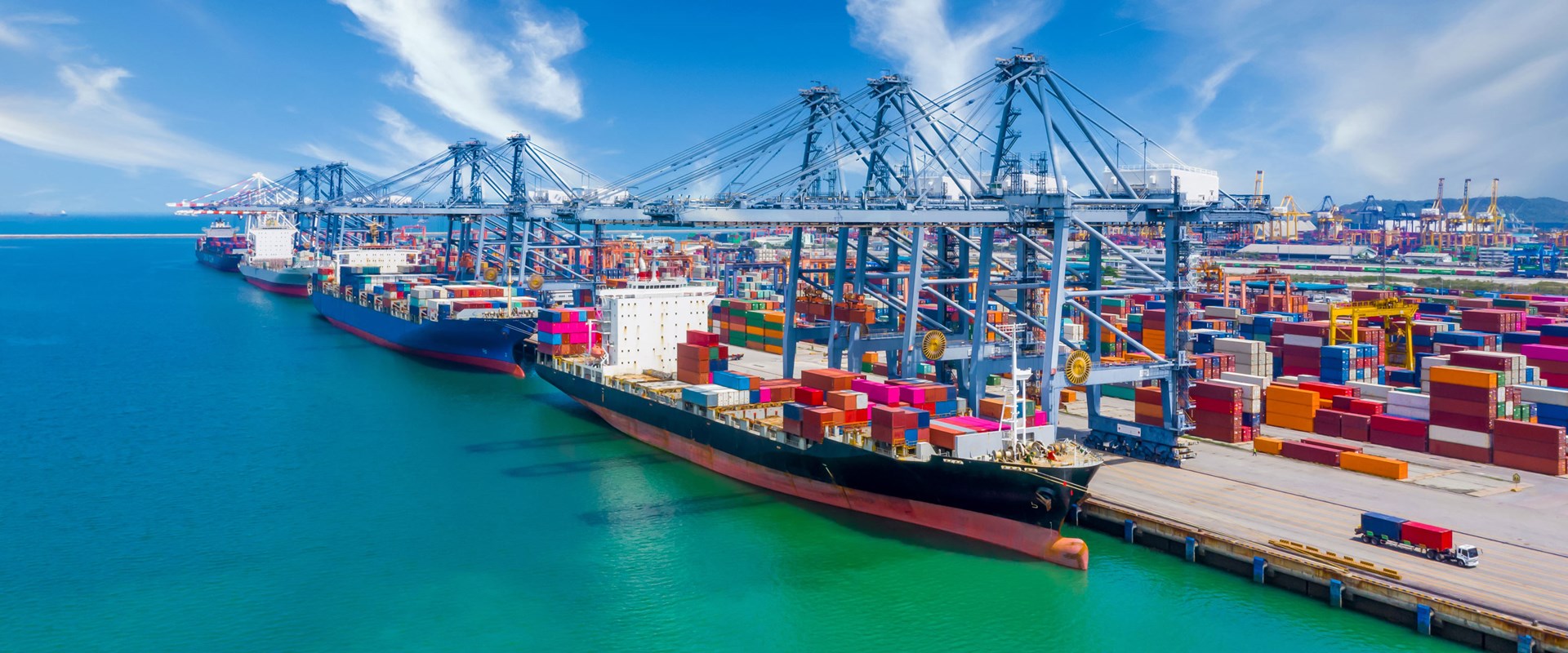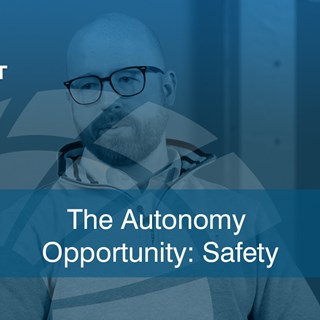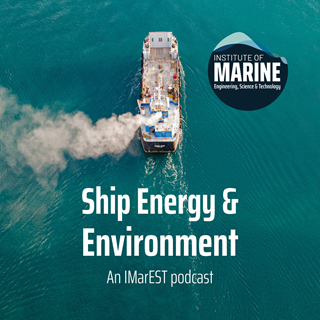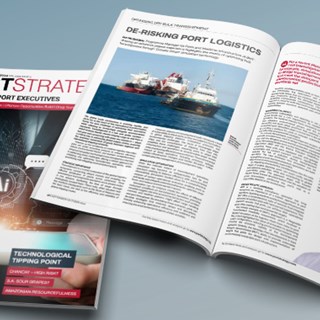
Closing the gaps
Shivaprakash Rao, head of Consulting and Energy Transition at BMT, was interviewed by Port & Harbors to discuss how infrastructure companies are collaborating with ports to enhance port infrastructure and operations.
9 March 2023
Shivaprakash Rao, head of Consulting and Energy Transition at BMT, shares his 20-year experience working with stakeholders in port terminals to achieve their goals.
Introduce your company and how you work with ports on infrastructure projects.
As a company specializing in ports and terminals, we work closely with port developers and operators to identify and Implement solutions to their challenges. We bring extensive maritime knowledge and expertise to the table, having worked with ports in various parts or the world, especially in APAC. we aim to help ports improve operations, increase efficiency, achieve sustainable growth, meet net-zero emission goals, and ensure return on capital invested. Ensuring ports are resilient to climate change impacts such as flooding, heat, and extreme weather is essential to ensure ports are reliable to their customers. My role has been to critically analyze the problems in the ports and ensure the delivery of cost-effective solutions, for instance, ports to study the expected future traffic, turning basin, quay turnaround, and intelligent solutions that could be brought into play to make the port operations more efficient.
How do you see the current state of port infrastructure?
Its current state must respond to its market, rapidly evolving to meet climate impact challenges, supply chain disruptions, and operational effectiveness through digitization and energy transition needs. With increasing global trade and digitization, ports must invest in digital infrastructure to respond quickly to changing customer demands. In addition, there is a need for ports to be smart so that they can anticipate supply and demand changes and ensure effective operations and a reliable partner in the supply chain. Against the backdrop of COVID-19-related supply chain disruptions, the trust is toward building an efficient port that plays the role of a vital cog in the gear of the overall global trade and its supply chain. In addition, energy transition and net-zero goals mean ports must go green, adopt low-carbon fuels such as LNG, and prepare for future zero-carbon fuels such as hydrogen and ammonia. The market potential for bunkering is also on the rise, with the increased use of low-carbon fuels and the push from the shipping industry.
What do ports need to prepare now for a changing infrastructure landscape?
Ports must prepare by aligning with market demands for operational efficiency, climate change, energy transition, or supply chain resiliency. While smart ports with digitization are an answer to operational efficiency, the recent geopolitics and supply chain disruptions have nudged nations to ether nearshoring or inshoring manufacturing, which would impact the trade flow and orientation of the existing ports. Hence, ports should reconfigure their yard space, invest in new technologies, improve operational efficiency, and streamline processes to attract trade flows. Examples that could make a port attractive include the supply of renewable electricity to calling vessels, infrastructure to bunker LNG, green methanol, green ammonia, and green hydrogen. Ports could reconfigure their Infrastructure to support offshore wind development during the construction and operations phases, which would mean more revenues. Additionally, ports must invest in training and development to ensure their workforce has the skills and knowledge to ensure operational effectiveness.
How can ports close the gaps?
Ports are essential in fostering a nation's economic development and connecting the country to more comprehensive trade. Ports are long-term investments, and to close the gaps, ports must collaborate with stakeholders, including suppliers, customers, and government agencies, to attract trade flows and contribute to the supply chain's resilience. By working with supply chain partners, ports can identify and implement solutions to their challenges, improving their operations and increasing their competitiveness. Additionally, ports need to focus on sustainability and environmental stewardship, which is becoming increasingly important to customers and stakeholders.
How do you engage with ports?
Our engagement with ports help them identify and address their key challenges and opportunities from a supply chain perspective and ensure profitability during the ports' economic life. COVID-19 has shown us how vulnerable the supply chain is, and disruptions can cascade and amplify to create congestion at ports owing to the bullwhip effect. We aim to help ports become resilient to external shocks, improve operations, and Increase efficiency while promoting sustainable and responsible practices. Engagement with ports helps them achieve their goals and success in a changing and challenging global trade scenario while managing the impacts of climate change.

Shivaprakash heads the consultancy and energy transition in BMT. He is responsible for initiatives related to energy transition, which includes a pivot towards offshore wind, maritime decarbonization and Hydrogen with a focus on port planning and development.
With over 28 years of experience in the energy sector, his expertise lies in varied industries like LNG, bulk liquid storage terminals, FPSO, gas platforms, petrochemicals, refinery, specialty chemicals, pharmaceutical bulk drugs and port development. He is a Chemical Engineer by training with MBA in Finance and a PMI certified Project Management Professional (PMP). His geographical exposure includes the Americas, Europe, the Middle East, India, Malaysia, Myanmar and Indonesia.
Shivaprakash has successfully implemented several critical infrastructure projects ranging from feasibility studies, basic design, FEED preparation, contracting, construction, commissioning and project close-out. Under project management, the span of functional experience includes all aspects of planning and controlling the project cost, schedule and scope.
His areas of expertise are Market Studies, Economic Appraisal, Project Management, Process Engineering, Piping Engineering, Risk Management, Capital Planning and Advisory services.
Shivaprakash is passionate about climate change, renewable energy and decarbonization; he has been a speaker at ASEAN Wind (2020), JACKS Forum (2021), EIC Wind Energy (2021), (SMW Singapore (2021), OTC KL (2021), VOWC (2021), ASEAN Ports and Shipping (2022) and TOC (2022).

N/A
Get ready to dive deep into maritime autonomy as we bring you technical experts, insightful opinions, and unmissable discussions.

Dr Thomas Beard
Episode 3 of IMarEST’s Ship Energy & Environment podcast series, addressed the ‘Realities and Challenges of Alternative Marine Fuels. Dr Thomas Beard, Clean Shipping Lead explores the practical side of the 'big four' alternative fuels.

N/A
The DCN spoke to our climate change risk, resilience and adaptation expert about preparing for the impacts of a changing climate.

Ian McRobbie
In a Port Strategy feature, Ian McRobbie highlights the merits of optimising bulk transshipment through ‘Climate-Smart’ simulation technology, drawing on extensive project experience